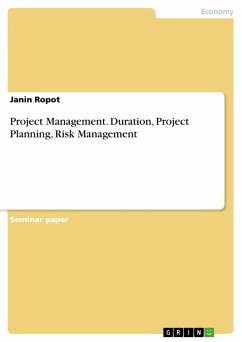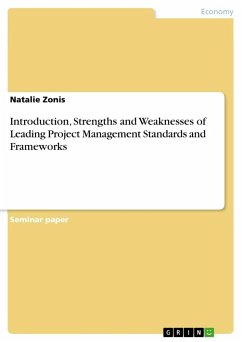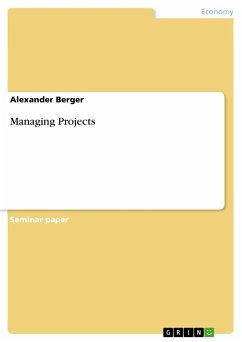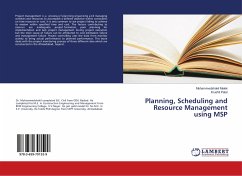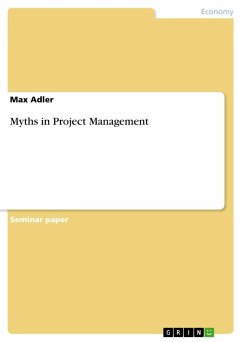Seminar paper from the year 2014 in the subject Business economics - Business Management, Corporate Governance, grade: 1.0, University of Sunderland, course: Managing Projects, language: English, abstract: Projects are customized solutions and are therefore dealing with uniqueness, uncertainty and risk. Precisely for this reason, "Project Management requires the use of many skill sets and involves tasks of limitless variety" (Heerkens, 2014). In addition to the basic skills for managing a project defined by Richman (2012) which can be found in Appendix 2, multiple other skills are needed for a successful management of a project such as "...flexibility, resourcefulness, ability to negotiate, personal drive and a large measure of common sense" (University of Sunderland, 2005). Apart from delegating tasks the PM needs to be able to rely and trust others in order to get things done. To handle diverse personalities into a unified team a smooth working relationship must be cultivated and requires the PM's ability to persuade and influence as well as to coach, mentor and motivate the staff (Heerkens, 2014). At best, he enables each individual within the project team to concentrate on their personal core competencies, ultimately resulting in better productivity and results for the project. The best competency mix of a PM includes Cognition Competencies (Analysing & Reasoning), Personal Effectiveness (Result & Safety Focus) Management Qualities (Planning & Organizing) and Leading Others (Acts as a role model to others). A professional PM never loses sight of interpersonal aspects as well as the environmental aspects and pays attention to details without getting wrapped up in them. "The best project manager is both a specialist and a generalist" (University of Sunderland, 2005).
Hinweis: Dieser Artikel kann nur an eine deutsche Lieferadresse ausgeliefert werden.
Hinweis: Dieser Artikel kann nur an eine deutsche Lieferadresse ausgeliefert werden.

